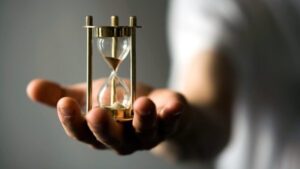It’s About Time
Being a time historian has its inherent problems. First of all, if you don’t know the exact time of an event that you are studying, you can miss the time completely. There is no second chance. Once you’ve signed up for an event and put in the coordinates and time frame, that’s it. There are no do-overs.
You get graded by the event you asked to research. You are not allowed to go back again to verify any claims, You need to stick it out for as long as necessary the first time.
This works fine if you underestimate the time because you can just stay where you are for as long as it takes to get to the correct time. For some reason, I pushed the wrong date once for the assassination of Abraham Lincoln. I was a year and a half too early. So I just lived out the time there until he got shot. Being there earlier than expected did allow me to get great seats for the shooting, but it was an extra year and a half of my life, which I could have spent researching other things.
Another rule that you have to follow is that you are not allowed to tamper with any event. This is very frustrating. Knowing that a certain person is going to be elected president and not being able to do anything that would change the outcome, despite the urge to do so, almost made me quit the Time historians guild. I mean, come on, who is going to miss Hitler? Then again, my parents probably wouldn’t have met, and if they did I’d be a German citizen, and trust me, German is not an easy language to learn.
Being a time historian does have its perks. You get to be a primary source for anything that you’ve witnessed. You may not be able to change what has occurred but you certainly can correct something that has been misrecorded. Of course, there is a lot of paperwork that needs to be filled out in order to change the facts. I’m still filling out all the paperwork on that Covid virus pandemic. Who knew it was caused by some sort of plane exhaust over the Antarctic. Oh yeah, you didn’t hear that from me. You’re not allowed to release any information on your finds until approved by the World-Honored Associated Time-Testers Having Examined – Force. Better known as “What the F”.
That’s what a time historian does. We think of an event to research. We go back in time to witness it, interview people, take pictures (which itself can be an issue if you go back to a time before cameras were invented), and come back, and report your findings.
Unfortunately, when I set my time frame for this writing playshop today, I got the day wrong. I’ve been sitting around just trying to come up with something to write about for about a month. Luckily today’s group is finally here. All I have to do now is write, which I did, read what I wrote, listen to the rest of you, and then go back and report. I’m sure you’ll all read about it when you get there (in time that is).

